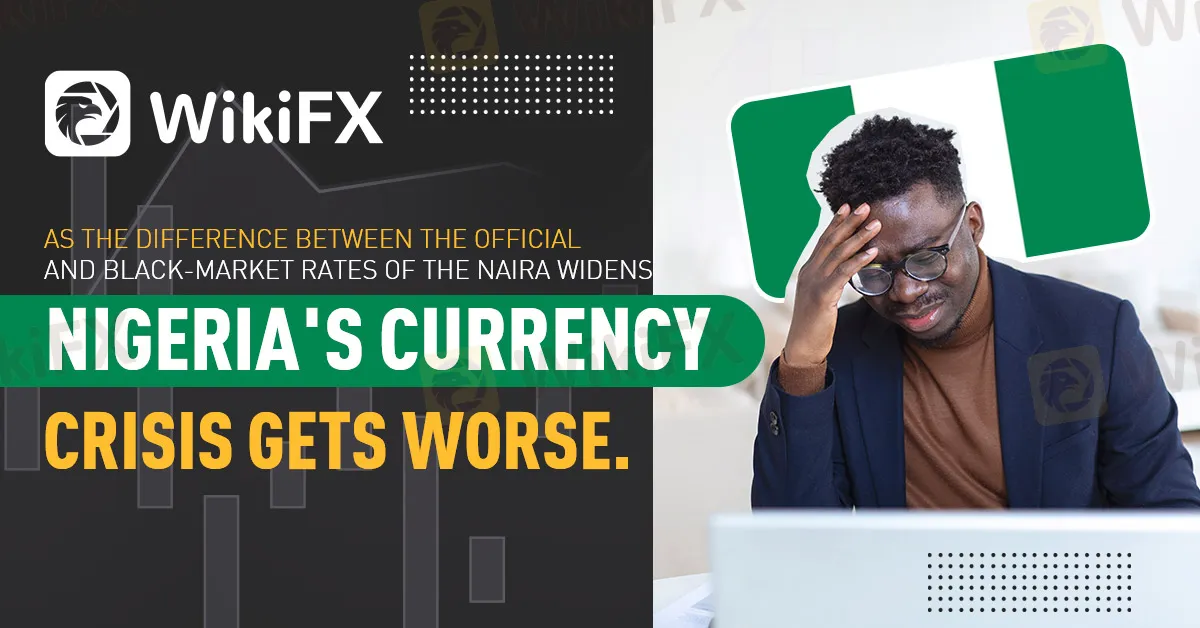简体中文
繁體中文
English
Pусский
日本語
ภาษาไทย
Tiếng Việt
Bahasa Indonesia
Español
हिन्दी
Filippiiniläinen
Français
Deutsch
Português
Türkçe
한국어
العربية
AS THE DIFFERENCE BETWEEN THE OFFICIAL AND BLACK-MARKET RATES OF THE NAIRA WIDENS
Abstract:As foreign currency demand continued to outpace supply, difference between the official and parallel market exchange rates of the naira expanded last week to its widest level in six years.

As foreign currency demand continued to outpace supply, difference between the official and parallel market exchange rates of the naira expanded last week to its widest level in six years.
On Friday, the official market saw a slight increase in the value of the Naira relative to the US dollar, rising 0.04 percent to N436.33. However, the value of the currency decreased to N715 versus the US dollar in the parallel market, leaving a difference between the two markets of 64%, the most since 2016.
In June 2016, the difference between the two rates reached 84 percent as a result of a crisis of dollar scarcity brought on by a decline in crude oil prices on the world market.
The pressure on the naira has made Nigerians scurry to find dollars to pay for imports and medical.
Many have turn to the black market as a result of the Central Bank of Nigeria's inability to meet demand on the official market, which has led to price increases.
Our employees sell what they want. They are not to blame for the banks' decision to stop lending us money. Because of this, rate keeps rising every day, a currency dealer at Udi Street stated on Friday.
FAILED INTERVENTIONS
In the past three years, the CBN made a number of measures to stabilize the local currency, but with little success.
Since the first quarter of 2020, the bank has depreciated the naira three times due to strain on the country's foreign reserves caused by decreasing oil income.
The bank stopped selling foreign currency to Bureaux Du Change owners in 2021, claiming that the black market had turned into a conduit for nefarious FX movements and corruption. It provided bonuses to people earning foreign currency last year.
As oil, earns less, there is still a dearth of dollars. Investments have been impacted by the scarcity of foreign currency, making it challenging for businesses and investors to repatriate funds. Threats to cease operations were made by foreign airlines.
Additionally, the crisis has put pressure on the naira, fueling inflation. In August, headline inflation soared to 20.5%, the highest level in 17 years.
The dollar is now in strong demand, according to Damilare Ojo, team leader for investment research at Meristem Securities Limited. For instance, many Nigerians are currently traveling abroad to pursue their education and require foreign exchange.
Politicians want more foreign currency; it will become more challenging as elections get closer. A sizable portion of these requests are satisfied in the black market, which has an impact on the local currency's value.
Compared to the black market, the value of the Naira has only been slightly more stable on the official market. Consequently, the difference between the two markets is growing, he said.
NUMEROUS RATES
Nigeria uses a system of numerous exchange rates, which has detrimental effects on investment.
The World Bank Group advised the Nigerian government to reconsider its policy of having multiple exchange rates in addition to its contentious gasoline subsidy system in April.
The most beneficial thing, is to have a single exchange rate that is market-based and stable over a long period of time since it will help to attract investment.

Disclaimer:
The views in this article only represent the author's personal views, and do not constitute investment advice on this platform. This platform does not guarantee the accuracy, completeness and timeliness of the information in the article, and will not be liable for any loss caused by the use of or reliance on the information in the article.
Read more

Philippines Deports 29 Indonesians Linked to Online Scam Syndicate in Manila
Online scam groups in the Philippines trick Filipinos into gambling and love scams, from Manila to Bacolod, causing trafficking and pain as police fight back.

Why does your mood hinder you from getting the maximum return from an investment?
Investment decisions are rarely made in a vacuum. Aside from the objective data and market trends, our emotions—and our overall mood—play a crucial role in shaping our financial outcomes. Whether you’re feeling overconfident after a win or anxious after a loss, these emotional states can skew your decision-making process, ultimately affecting your investment returns.

Top Currency Pairs to Watch for Profit This Week - March 31, 2025
Discover the top 5 currency pairs to trade for profit this week, March 31, 2025—USD/JPY, EUR/USD, GBP/USD, AUD/USD, USD/CHF—with simple strategies and best times.

Stock Market Trading Volume Drops by 97.58 Billion Naira This Month
In February, Nigeria's stock market trading volume dropped by 97.58 billion naira, with foreign investors pulling back. Can domestic investors sustain the market?
WikiFX Broker
Latest News
How Crypto Trading Transforms FX and CFD Brokerage Industry
UK would not hesitate to retaliate against US tariffs - No 10 sources
FCA Warns Against 10 Unlicensed or Clone Firms
CySEC Warns Against 14 Unlicensed Investment Websites
Top Currency Pairs to Watch for Profit This Week - March 31, 2025
Will natural disasters have an impact on the forex market?
Philippines Deports 29 Indonesians Linked to Online Scam Syndicate in Manila
Navigating the Intersection of Forex Markets, AI Technology, and Fintech
Exposed: Deceptive World of Fake Trading Gurus – Don’t Get Fooled!
AI-Powered Strategies to Improve Profits in Forex Trading
Currency Calculator







